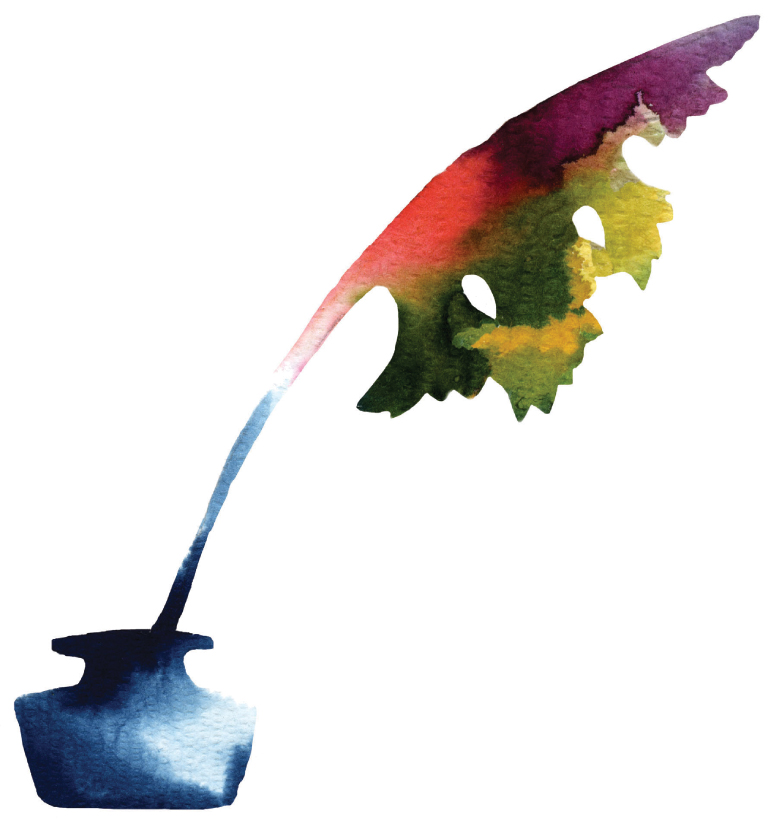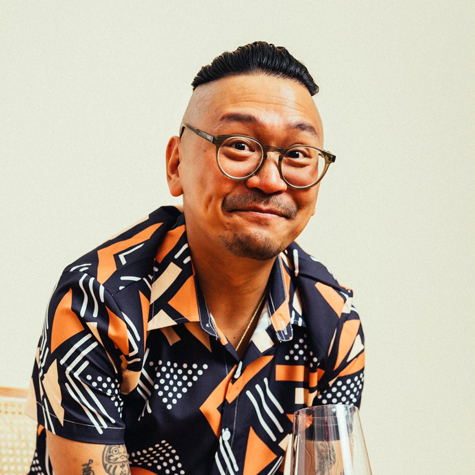2023 Closing Keynote, by Miguel de Leon
The last two and a half days of wine writing programming I learned crucially that one day was not enough and three would be too many.
Firstly, I want to thank the board of the Wine Writers Symposium, the Napa Valley Vintners, and the programming team under Sarah and Maryam for taking this kind of chance because the product of this room is the future of thoughtful, intentional, and purposeful wine writing. Secondly, to the entire team at the Meadowood, thank you for restoring my faith in what warm, gracious hospitality can do to nurture the soul, and what a generous snack bar can do to nourish my snack habit. Third and most importantly, to the fellows, thank you for having an open heart and an eager pen ready to fill the many blank pages ahead of you.
Like all of the fellows here, I was tasked to answer the question of why wine is important, so here’s my practical short answer: it is what helps me pay the bills, it’s the reason for my employment, and it is the cornerstone of my career.
It is also one of the things that makes me supremely happy simply by existing; it soothes on days that take too much; it inspires when the inevitable block begins to creep; it makes food infinitely more delicious and complex; it induces emotions that make memories long-lasting.
The romantic, long answer starts like this: the capacity of wine to bring people together is greater than any other conduit of empathy that I know. A bottle warrants sharing, the moments in our lives we consider remarkable call for it, it is what brings us from all backgrounds and circumstances into this very room. It’s the lens we use to consider our passion, our hobby, our careers; it’s what keeps us up at night and what makes us get up early in the morning; for some, it is the way they connect to their deep roots in a place, and for others, it is a north star that guides how they derive purpose from the earth. It elucidates our human condition because of all the values we attach to it; it is a superb vehicle for the quest for a deeper understanding of our place in the cosmos.
We often talk about how wine gives us a chance to manifest history, geology, anthropology, culture, and art, and how what’s in the bottle collapses thousands of years into a single sip as we experience the multitudes of decisions turning stardust into alchemy. The nature of wine is that it is all in hindsight, that from the moment we choose to open a bottle it turns into a piece of performance art that we experience singly and all that’s left after consumption is our own devices. In vino veritas, we say that wine makes light of our subconscious and teases out truths. Even the apocryphal mythos of a full breath blown into glass as the size of a bottle of wine gives us some idea of how linked and mystical our connection is to this beverage, and it unlocks some sort of answer in answering what our higher purpose is. How wonderful to think of an ideal, that somehow when we drink the mysteries of the universe might fall away.
I can tell you that my mom, whose bottle of Arbor Mist Peach sits in her fridge, has a life that is rich and meaningful without any of this – or at least, without some of my intervention, her requisite bottle of Lambrusco for Christmas because we barely celebrate Thanksgiving. She thinks that when I look at a label I’m looking for nutrition facts, or a number that will tell me how inebriated I’ll become, or that I’m translating what it says so it’ll make sense to me because of my previous life as a linguistics grad. She herself doesn’t speak French or Spanish but she does speak English because it’s her third language, like mine, and she is not a woman you would call simple. She is well-traveled, open to experiencing the wonders of the world, and not for one second has she thought that wine was a significant part of her life. In all honesty, I don’t think she considered it to be this significant in mine – in a parallel universe there is a Miguel out there who is an architect with two kids who doesn’t know the crus of Beaujolais or the complications of Anbaugebiete and the Prädikatswein system and he is very happy – but thankfully I’m in this timeline, where I do know how to articulate the subtleties between a village in France that has grapes to another village in the same part of France that has the same grapes. (I promise I’m a sommelier, just not today.)
But there are countless people like my mother, people we love who are dearly unaware of the magic we see, living wonderful complete lives without ever so much drinking a drop of this stuff, let alone countless more strangers whose cultures don’t include wine or whose socioeconomics prevent them from peeking into this rarefied world of viticultural subzones and varietal expertise, so again I’ll ask: why is wine important?
Why is wine important in a place like Bernal Heights?
Alemany Farms sits perched off of 280 on the south side of San Francisco, south of the Mission, past Noe Valley and Bernal Heights, where you’ll likely see Chris Renfro, 38, his hair in small locs under a beanie, wearing a comfy hoodie, turning compost or speaking to one of his many young mentees. In this part of San Francisco’s “Black Belt,” Alemany Farms used to be a local dump, with remnants of fridges and cars littering the patch until about 1995, when it was converted into usable land appropriate for an urban organic farm for the nearby housing project called Alemany Apartments. In 2005, a group called the Friends of Alemany Farm took over the site, and its three and a half acres stands as the largest agricultural site in San Francisco, now a site where Chris has set up an educational viticultural project with some vines and can begin to fulfill his vision of investing in his community, revitalizing Alemany as a hub for its residents, and building a sustainable lifestyle for it. In a partnership with UC Davis and Steve Matthiasson now in its third year, he aims to have apprentices, a range of folks from local housing project tenants to previously incarcerated individuals, learn about what makes his San Francisco beautiful and how wine can be used as a tool for the community. I urge everyone in the room to read from one of your fellows, Sydney Love’s piece in Alta Online about this very thing. Chris and his vision of wine are important – it involves all the lanes on a giant freeway, from his necessary advocacy of Black bodies to an optimistic future of what it looks like when they lead.
Chris will tell you wine is a tool to help bring out these truths. What does wine mean to an outsider in Beaujolais?
Mee Godard spent her childhood near Lyon, a South Korean adoptee to French parents, and went to Oregon to learn about Food and Science Technology, surrounded by Pinot Noir. She studied winemaking in Montpellier in 2003, learned in estates in Bordeaux and Champagne, and in 2013 bought some old vines in Morgon from André Meyran, a winemaker with no descendants who wanted to retire, and eventually added a small climat in Moulin-à-Vent in 2016. The operation is practically a one-woman show; Mee prunes, farms, and zips around the cellar with purpose. Barely twenty years ago women in Beaujolais wouldn’t have even cracked any end-of-year lists, let alone someone who presented as an outsider without any ties to the area. WIth her holdings in Corcelette, Côte-du-Py, and Grand Cras, now, Mee’s wines are highly sought after, vins de garde made for contemplation and which carry sincere ageability, as the writer Tamlyn Currin describes as “dark-suited and achingly pure.” She is unburdened with generational expectations but has also found a tight community in Beaujolais. Mee says “I created this estate because I could not find a job which would make me evolve to have the level of accomplishment I wanted. This is about doing something in my life, for me.”
One of the great things that wine offers, Mee says, is its ability to put us in a clear emotional state, a goal she has for all the cuvées she makes.
To many of us in this room we heard over and over again the importance of our voice and how we must hold dear and intact what our point of view is. It is a truth that is powerful because it is ours, because in terms of our understanding of the world around us, it is the thing that stays the same. Within our bodies we carry an awareness that our distinctness is a good thing, that no one else can say that our life is wrong because we exist. How you think is important. As writers, how you express those thoughts and convey those emotions is important. It’s what sets you apart from one another and the thing that brings you closer together. It’s how we know that robots and artificial intelligence will need a long time until they take this away from us, because they don’t know how to synthesize information or be profound with metaphor. It’s how, as Dottie says, we cultivate empathy, because of a deep-seated human desire to feel, to share, to connect.
It is this connection with each other, and more importantly, the compulsion, the need to understand stories like Chris’ and Mee’s and my mom’s, why wine is important, because we think it is – and that’s enough, I think. It’s that import that we give wine that makes it special. It’s important because it’s important to me, to you, to Eric and John and Dottie and Elaine, and especially to someone else that’s not in this room.
Wine allows us to joyfully contemplate the human condition because we are the ones to give it purpose: to educate the general public about its innate deliciousness, to foster community and make brave spaces for those who have been underserved by its violent histories, to highlight our curiosity for a place, a variety, or a group of people, to profess our responsibility to the natural world while stewarding it as its custodian, to write clearly and concisely about why it matters.
To leave you with some parting thoughts, first, if you take a photo and swipe up you can make little notes to make it searchable, and second, I hope to see your writing challenge what’s expected, your reporting squeeze every drop of truth, your points of view to remain firm but stay open to listening to others, and your joy to emanate from the glasses we share and contemplate together.
I raise a toast to you, fellows and presenters of this cohort, that you someday will also long for a wine that makes you feel like the little spoon.
8 March 2023
Meadowood Napa Valley Wine Writers Symposium Miguel de Leon
IG @migueld1 TW @migueld miguel-deleon.com



